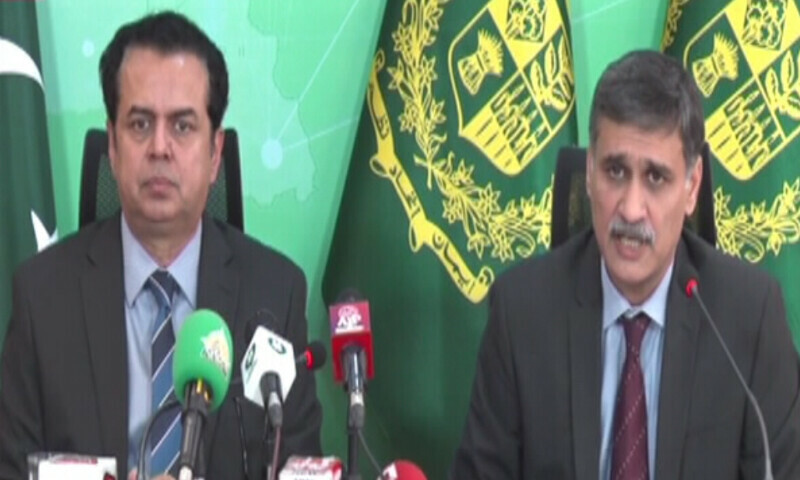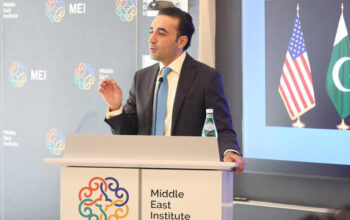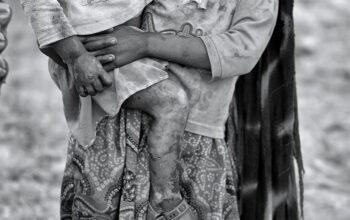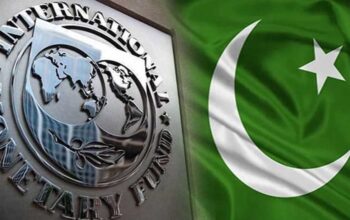By Staff Reporter
ISLAMABAD: Authorities have dismantled a child sexual exploitation gang in Punjab’s Muzaffargarh district, arresting two suspects and rescuing ten children from a network allegedly run by a German national, officials said Tuesday.
The National Cyber Crimes Investigation Agency (NCCIA) exposed the operation, which exploited vulnerable children and distributed their videos on the dark web, marking a significant breakthrough in the country’s fight against cybercrime.
Speaking at a press conference in Islamabad, Minister of State for Interior Talal Chaudhry said the NCCIA had uncovered a “huge network” during an operation conducted on May 23. “They set up a small club where children aged 6-10 years were taught games. They provided state-of-the-art facilities and modern cameras,” Chaudhry said, detailing how the gang lured its victims.
He said children from disadvantaged families were “brought there, given money, and then blackmailed” to exploit them, with “their videos uploaded on the dark web daily and sold for thousands of dollars.” “Some videos were live-streamed and seen around the world from Muzaffargarh.”
Chaudhry identified the mastermind as a German citizen, vowing that “the network was run by a German national and all efforts will be made to arrest him.”
The minister provided a grim tally of the gang’s toll, noting that “fifty children had been victimised by the grooming gang.”
On May 23, the NCCIA launched a five-hour operation with assistance from other agencies, resulting in the arrest of two suspects. “Ten children were recovered and six were handed over to the child protection bureau,” he said.
In a disturbing twist, Chaudhry added that “unfortunately, the families and parents of some children were also involved in the nefarious crime and action has been initiated against them as well.”
The operation underscores the NCCIA’s growing role in tackling cybercrime across Pakistan.
Chaudhry praised the agency’s efforts, stating it “had been working diligently against financial scams, harassment, and other cybercrime.”
He noted that “financial scams had become common due to the easy availability of mobile phones and the agency had been taking action after receiving complaints.”
To bolster its capacity, he urged that “the workforce of the agency should be increased threefold and a branch should be set up in every district,” adding, “The interior minister and prime minister have been requested to increase funds for the NCCIA in the budget.”
International collaboration played a key role in the bust. Chaudhry credited the National Centre for Missing and Exploited Children (NCMEC), saying, “An international organisation, the National Centre for Missing and Exploited Children (NCMEC), provides information and the NCCIA takes prompt action.”
He detailed the agency’s broader efforts, noting that “178 first information reports have been lodged against child exploitation, 198 suspects have been arrested, and fourteen were jailed between four to ten years.”
The Muzaffargarh case emerges against a backdrop of widespread child abuse in Pakistan.
According to the Cruel Numbers 2024 report by the civil society organization Sahil, 3,364 child abuse cases were reported across the country’s four provinces, Islamabad Capital Territory, Azad Jammu and Kashmir, and Gilgit-Baltistan in 2024. Compiled from data in 81 national and regional newspapers, the report documented cases of sexual abuse, abduction, missing children, and child marriages, revealing that “nine children were abused per day during the year.”
A gender breakdown showed that 1,791 victims (53 percent) were girls and 1,573 (47 percent) were boys.
Copyright © 2021 Independent Pakistan | All rights reserved




